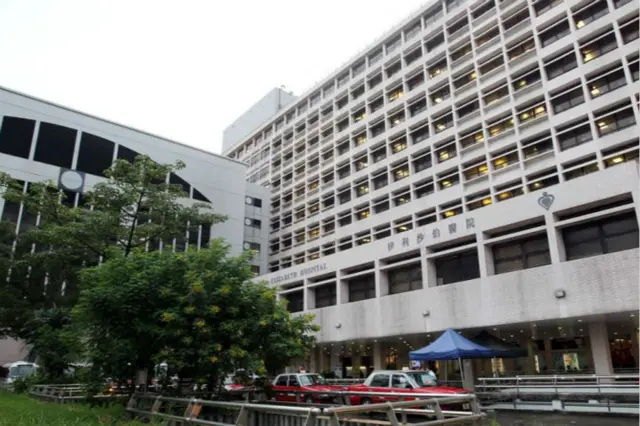A second woman has died after giving birth at Queen Elizabeth Hospital, the hospital confirmed on Thursday.
The 33-year-old, who has not been named, was 38 weeks’ pregnant when she was admitted to the Yau Ma Tei hospital on November 28 after going into labour.
A few minutes after the delivery she suffered massive bleeding and underwent surgery that lasted over 10 hours, during which her heart stopped beating and she was resuscitated multiple times.
She died two days later.
Two months ago a 26-year-old woman, understood to be a police officer, died in the same hospital.
It was “unusual and unprecedented” for two cases to take place in such short period of time, the deputy hospital chief said.
He refused to blame staff shortages, a common problem at public hospitals in the city.
The latest tragedy came to light on Thursday when the woman’s husband, who wants only to be known as Chung, came forward after hearing of the earlier case.
He said shortly after the birth doctors told him an urgent operation was needed as they were unable to stop his wife’s bleeding.
“I was shocked and almost fainted when I heard this,” Chung told a TV station by telephone. “I saw my wife being pushed from the delivery room to the operating theatre. It was the last time I saw her. Her eyes were half closed and she was not quite conscious. I called her once and she could only respond with a sound.”
Chung demanded a thorough investigation and full disclosure of the findings.
Dr Ho Hiu-fai, deputy hospital chief executive of professional services, said an investigation panel had been formed and a report was expected in six weeks. It will hold its first meeting on Friday.
“The nature of these two cases were vastly different,” Ho said. “But we will need to wait for the second report to make any comment.”
The report on the first death, released on Wednesday, identified at least two mistakes. The medical team failed to notice that a fragment of placenta was left inside the woman’s uterus and wrongly assumed her bleeding after delivery was under control.
It did not mention the need for any disciplinary action and pointed out that the woman had been diagnosed with high blood pressure and a condition called proteinuria, excess proteins in the urine, which increased the risk.
Ho said the second woman suffered diffuse intravascular coagulation – a complication in which clots block the blood flow and damage the organs. Ho said there were fewer than five maternal deaths per 100,000 births.
He did not answer questions about whether mistakes were made in the latest case and stressed that all the medics had done their best.
There are 27 doctors in the department, 15 of them specialists, and one vacancy.
“Each of these two pregnant women had been seen by at least four or five doctors, and there were seniors doctors with over 10 years of experience handling their conditions,” Ho said.
One investigator on the panel, Dr Cheung Tak-hong, chief of obstetrics and gynaecology at Prince of Wales Hospital in Sha Tin, said: “It seems it is most important for us to know why there was massive blood loss and what the medics had done to stop the bleeding in this case.”
(SOUTH CHINA MORNING POST)
 简体中文
简体中文








